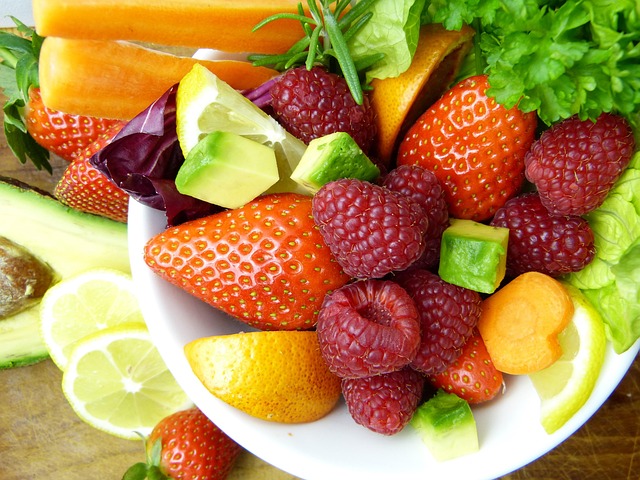If you’re looking to improve your health, lose weight, or feel more energized, you may have come across popular diet trends like intermittent fasting, the keto diet, and plant-based diets. But which one is right for you? In this beginner’s guide, we’ll break down each of these diets, their benefits, and how you can start implementing them today.
1. Intermittent Fasting (IF)
Intermittent fasting is not so much a diet as it is a pattern of eating. It focuses on when you eat rather than what you eat.
How It Works
The most common approach to intermittent fasting is the 16/8 method—you fast for 16 hours and eat during an 8-hour window. For example, you may eat from 12 PM to 8 PM and fast from 8 PM to 12 PM the following day.
Other popular methods include –
-
5:2 method: Eat normally for 5 days, and restrict calorie intake to 500–600 calories on 2 non-consecutive days.
-
Alternate-day fasting: Fast every other day.
Benefits
-
Weight loss: By reducing the eating window, you naturally consume fewer calories.
-
Improved metabolism: Intermittent fasting can boost your metabolism and improve insulin sensitivity.
-
Cellular repair: During fasting, your body triggers autophagy—a process that helps repair cells and remove toxins.
How to Start
-
Start with a 12-hour fasting window and gradually increase it to 16 hours.
-
Focus on whole foods when eating, such as vegetables, lean proteins, and healthy fats.
-
Drink plenty of water, herbal teas, or black coffee during fasting hours.
2. The Keto Diet
The ketogenic (keto) diet is a high-fat, low-carbohydrate diet designed to put your body in a state of ketosis—where it burns fat for fuel instead of carbohydrates.
How It Works
-
Carbs: Limit your carb intake to 20–50 grams per day (about 5-10% of your daily caloric intake).
-
Fats: Increase fat intake to 70-80% of your total daily calories.
-
Protein: Moderate your protein intake to about 20% of daily calories.
When you reduce carbs drastically, your body starts burning fat for energy, producing molecules called ketones that provide energy to your brain and body.
Benefits
-
Weight loss: The keto diet helps your body burn fat, and many people report significant weight loss.
-
Improved mental clarity: Some people experience better focus and mental sharpness.
-
Better blood sugar control: The keto diet may help stabilize blood sugar levels, particularly for those with type 2 diabetes.
How to Start
-
Limit your carbohydrate intake to vegetables, nuts, seeds, and dairy products.
-
Replace carbs with healthy fats, such as avocados, olive oil, and grass-fed butter.
-
Make sure to consume moderate protein from sources like fish, chicken, or plant-based options like tofu.
3. Plant-Based Diet
A plant-based diet focuses on eating foods that come from plants, including vegetables, fruits, whole grains, nuts, seeds, and legumes. While not necessarily vegan or vegetarian, a plant-based diet minimizes the consumption of animal products.
How It Works
-
Focus on whole foods: Choose whole, unprocessed plant foods, including a variety of fruits, vegetables, and legumes.
-
Avoid processed foods: Minimize or avoid refined sugars, oils, and processed plant-based foods.
-
Animal products: While a strict plant-based diet excludes animal products, many people incorporate small amounts of animal protein, depending on the individual approach.
Benefits
-
Weight management: Plant-based diets are high in fiber and low in unhealthy fats, making it easier to maintain a healthy weight.
-
Heart health: High fiber intake and low saturated fat content help reduce the risk of heart disease.
-
Improved digestion: Fiber-rich plant foods promote gut health and regular digestion.
How to Start
-
Incorporate more plant-based meals into your diet, starting with 2–3 days a week.
-
Focus on whole grains, leafy greens, beans, lentils, and healthy plant fats like avocado and olive oil.
-
Gradually reduce your intake of processed meats and dairy, replacing them with plant-based alternatives.
Which Diet Is Right for You?
Each of these diets offers unique health benefits, and which one is best for you depends on your goals, preferences, and lifestyle. Here are a few things to consider:
-
Intermittent Fasting may work well for people who prefer structured eating windows and want to improve metabolism and lose weight.
-
Keto is great for individuals looking for fast weight loss and those who want to experience the benefits of ketosis.
-
Plant-Based is ideal for those who want to eat a nutrient-dense, anti-inflammatory diet while reducing their environmental impact.
Remember, there’s no one-size-fits-all approach to health. Start small, listen to your body, and choose the diet that makes you feel the best.


